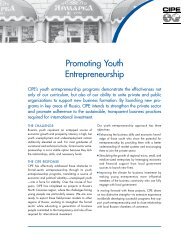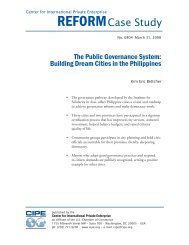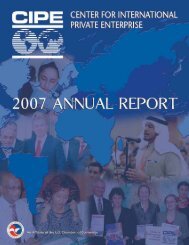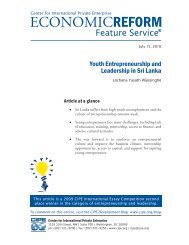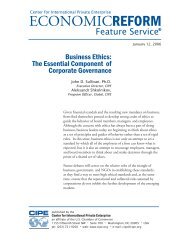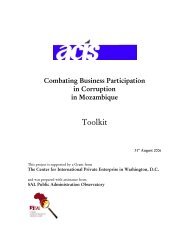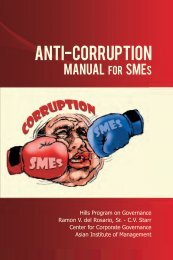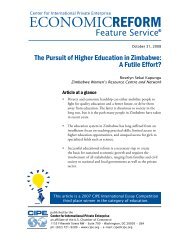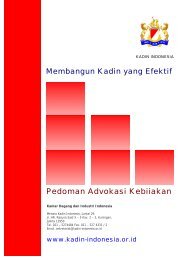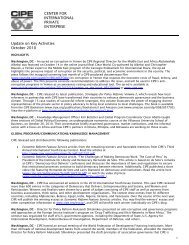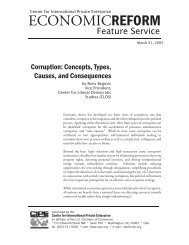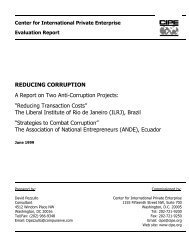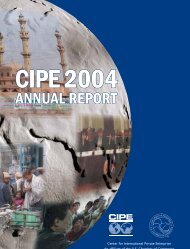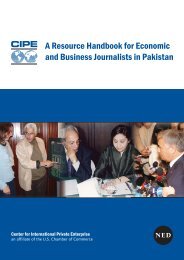Responsible Business Guide: A Toolkit for Winning Companies
Responsible Business Guide: A Toolkit for Winning Companies
Responsible Business Guide: A Toolkit for Winning Companies
Create successful ePaper yourself
Turn your PDF publications into a flip-book with our unique Google optimized e-Paper software.
RBG<br />
<strong>Responsible</strong> <strong>Business</strong> <strong>Guide</strong>: A <strong>Toolkit</strong> <strong>for</strong> <strong>Winning</strong> <strong>Companies</strong><br />
RBF Pillar 1: Governance and Management<br />
Company governance and management is the face of a company. It is an outsider’s<br />
window into how ethical and accountable a company’s behavior can be.<br />
Decision-making and Values<br />
The root words <strong>for</strong> governance and management mean “to steer” and “handle” respectively,<br />
and spell out the job of a company’s decision-makers. These typically include proprietors,<br />
directors, or managers. Whether a company is small or large, it operates on a system of<br />
leadership and decision-making that allows <strong>for</strong> it to sell goods or services <strong>for</strong> a profit. All<br />
company decisions must always be made to ensure profitability. But they must also be<br />
implemented within bounds determined by the culture, tradition, or social values within<br />
which the company operates.<br />
Hence, while Governance, comprising the board of directors in larger companies or the<br />
proprietors in smaller ones, provides the value framework <strong>for</strong> business decisions,<br />
Management comprises individuals who must take these decisions at the operational level.<br />
In smaller companies, these are often the same individuals, but increasingly, company<br />
employees trained as managers are charged with implementing a company’s business<br />
operations under guidance.<br />
In my view, neither the fraud nor the discovery<br />
of the fraud caused the downfall [but]... corporate<br />
decisions — loading the company with debt, poor<br />
acquisition decisions, also the Internet mania that<br />
swept the country and the telecomm implosion<br />
in general.<br />
Cynthia Cooper<br />
MCI-WorldCom whistleblower<br />
A company’s decisions are deeply entwined<br />
with its ethical values, which are reflected in<br />
its public image. How companies are regarded<br />
in public determines how much business they<br />
can generate. When a company’s declared<br />
values contradict its practices, catastrophic<br />
consequences may follow.<br />
MCI-WorldCom illustrates this well. When it filed <strong>for</strong> bankruptcy in 2002 it was more than<br />
the biggest corporate collapse in U.S. history. It was an example of wayward governance<br />
propelled by greed, where an overtly religious CEO attended church while senior managers<br />
systematically abused the accounting system through fraudulent entries and loans, reflected<br />
losses as investments, and lied to investors in collusion with accountants and stock-market<br />
analysts.<br />
<strong>Responsible</strong> <strong>Business</strong> Initiative 23



